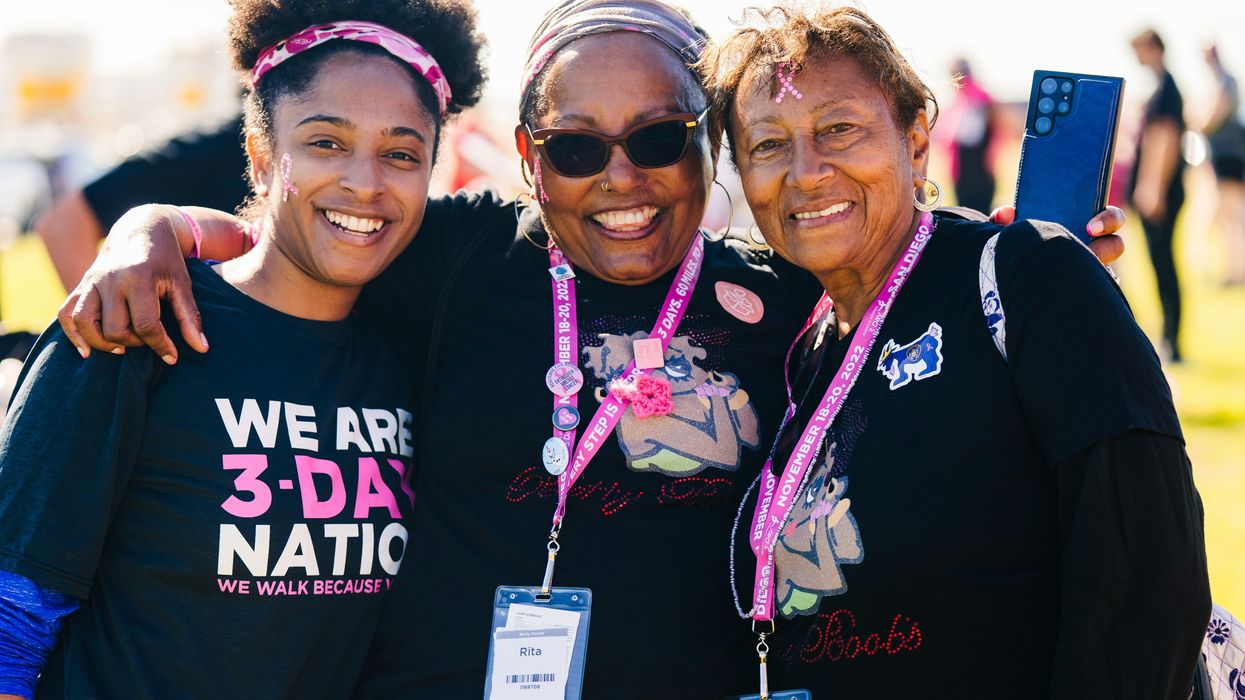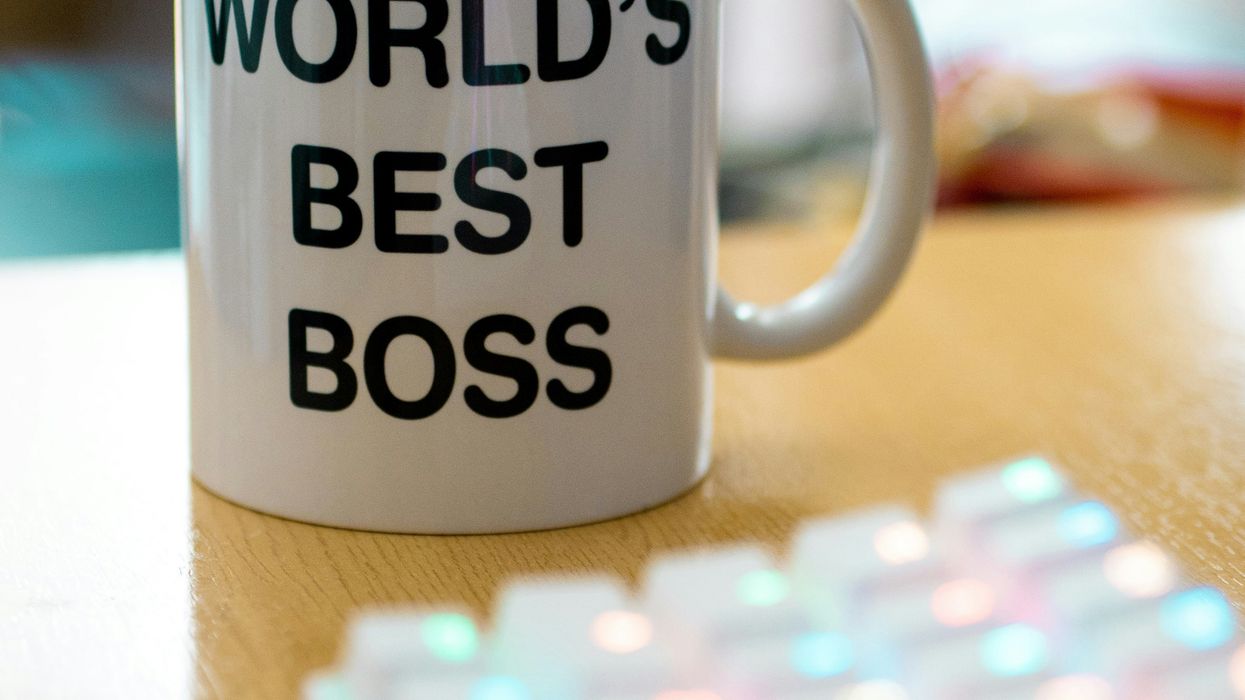I was 60 years old, sitting in my doctor’s office, overweight, frustrated, and exhausted, seeking yet another plan to lose weight. I had done this before. Many times. But this time, something was different. My doctor looked me dead in my eyes and said, "Stress will kill you." Who? Me? Stressed? And for the first time, in my forty-year career, I considered the sobering possibility that my job might be stressful.
I had spent decades excelling in my career, pouring everything into my job in advertising and media. But while my work flourished, my health suffered. Like many Black women, I had been conditioned to push through, to be resilient, to be strong. But the reality was that my strength was coming at a cost. My body bore the burden of stress, trauma, an unhealthy relationship with myself, and poor food and emotion management skills. And I didn’t even know it.
The Truth About Food and Trauma
Did you know that nearly 80% of Black women in America are overweight or obese, a significant factor in hypertension and heart disease? Or that Black women who have experienced childhood sexual abuse are twice as likely to struggle with obesity and food addiction? I didn’t know these statistics when I was sitting in that doctor’s office. But I did know that I was done living in a body that no longer felt like my own.
I used to think my weight struggles were just about self-control and discipline, that I just needed to try harder, eat less, and exercise more. I thought I just loved food more than other people. But I was missing the bigger picture. I didn’t know processed food manufacturers, the snack food industry, the fast-food industry, and even the weight loss industry were conspiring against me — against all of us. I didn’t know that processed food is scientifically designed to be addictive. I didn’t know that my cravings for certain food weren’t just about willpower, but about deep-rooted food stories that I had carried since childhood.
I had to learn the hard way that my battle wasn’t with food — it was with my beliefs about food.
The Shift: From Dieting to Reclaiming Power
My transformation wasn't about finding the perfect diet or squeezing into a smaller dress size. After decades of gaining and losing over 700 pounds, I finally understood that this journey was about reclaiming my power and healing my relationship with myself.
The real breakthrough came when I started asking "why" instead of just "what." Why did I turn to food when I wasn't hungry? Why did certain emotions send me straight to the kitchen? Why did I keep choosing foods that hurt rather than heal?
As I began to unpack and rewrite my food stories, everything shifted. Food lost its power over me, and I reclaimed mine. This wasn't just about weight loss - it was about coming home to myself.
I developed a simple yet powerful framework that helped me — and now helps others — take back control:
Five Questions to Ask Before Eating, Any and Everything:
- Is this really food? (Not all edible items are actually food)
- How do I know it's really food? (Look beyond marketing to true nourishment)
- Am I hungry, or am I feeling something else? (Emotions often masquerade as hunger)
- If this food won't give me the results I want, why eat it? (Align choices with goals)
- Why this food, now? (Understand the true motivation behind each choice)
These questions aren't about restriction - they're about awareness and empowerment. They create a moment of clarity between impulse and action, a space where real choice becomes possible.
Four Mindset Shifts for Transformation – This Part Right Here:
The real power to change how you manage food and your emotions lies in transforming your mind. Through my journey of learning how to lose weight and keep it off, I discovered four essential practices that create lasting change:
1. Harness the power of visualization. When you regularly see yourself as your healthiest self, your brain begins accepting this as your reality. This isn't just daydreaming - it's mental rehearsal that shapes your choices and behaviors. Each time you visualize success; you pave new neural pathways that support your goals.
2. Speak your new truth through affirmations. Words shape our reality. Simple statements like "I choose foods that nourish my body" or "I am in control of my food choices" may seem basic, but they challenge old stories that keep us stuck. These declarations become anchors of truth when old habits try to pull us back.
3. Practice meditation to cultivate awareness. In the rush of daily life, we often eat mindlessly, using food to cope with stress or emotions. Meditation teaches us to pause and listen to our body's true needs. This simple practice of stillness helps break the cycle of reactive eating.
4. Use prescriptive writing to heal emotional triggers. As Black women, many of us carry complex histories with food - stories of comfort, celebration, survival, and love. Through journaling, we can unpack these stories, understand their power, and write new ones that serve our health.
These four practices are not emphasized in mainstream weight loss programs because they don't sell products or quick fixes. But they address what many Black women struggle with most - the emotional component of eating. When we do this critical inner work, following nutrition plans becomes natural because our minds and bodies are finally aligned.
The journey to lasting health isn't just about what's on our plates - it's about what's in our minds. By embracing these tools, we can create lasting change.
Three Core Truths About Food That Changed Everything:
In my journey from food addiction to freedom, three fundamental truths emerged that shattered everything I thought I knew about eating:
1. Food has one job: to satisfy hunger. Not to comfort us after a hard day, not to celebrate our victories, not to fill our emotional voids. When we use food to solve problems beyond hunger, we create new problems instead.
2. Food's sole purpose is to nourish our bodies. That's it. We've loaded food with so many other meanings - love, reward, comfort, celebration - that we've lost sight of its true purpose. Real food fuels our lives; it doesn't complicate them.
3. Nearly everything we believe about food has been carefully engineered by industries that profit from our confusion. The fast-food companies, the snack food manufacturers, the weight loss industry - they've all worked to distort the truth about food. Their marketing messages have become our beliefs, and their profits have become our problems.
When you understand these truths, you begin to see food differently. You start making choices from wisdom rather than conditioning. You realize that true freedom comes not from finding the perfect diet, but from uncovering the truth beneath the lies we've been sold.
Two Choices:
Every time we lift food to our lips; we face a profound decision. Not just about taste or convenience, but about life itself.
1. Will this choice nourish my body or deplete it? Will this food fuel my dreams or feed my disease? This journey has taught me there is no neutral ground. Every bite either moves us toward health or away from it.
2. This clarity transformed how I manage food. Now, before eating, I pause and ask: Will this food be medicine or poison? Will it strengthen me or weaken me? Will it help me thrive or merely survive?
These aren't just meal choices – they are life choices. When we see food this clearly, decisions become simpler. Not always easy, but clear. Because the question isn't "Does this taste good?" but rather "Does this serve my life?" These questions aren't about guilt or deprivation. They're about power - your power to choose life, vitality, and health with every meal. Because you deserve nothing less.
One Ultimate Truth: This Set Me Free
Let me share something crucial: It’s not my fault. It's not your fault. The billion-dollar food and diet industries have created a system designed to keep us struggling - especially Black women. They profit from our confusion, our cravings, and our cycles of guilt and shame.
But here's the liberating truth: Once you understand this game, you can choose not to play it. You have the power to write a new story - one of healing, strength, and freedom. I know because I've lived it, moving from decades of struggle to lasting peace with food. I don't worry one day about gaining the weight back.
Your journey to freedom begins with this understanding: Your worth isn't measured by your weight, and your power isn't determined by your past. You already have everything you need to transform how you manage food and your emotions. It starts with being willing to change your mind to change your life.
The Power of Food Stories
I learned to control stress eating and emotional overeating not by dieting, but by understanding my own food stories. Every woman has food stories. A memory tied to a meal, an emotion connected to a craving, a belief about what food means in her life. Once you find your food stories, you can change them.
And when you change your food stories, you change your life.
Black women have always been the backbone of our families and our communities. We nurture, we uplift, we carry. But we cannot continue to do so at the expense of our health and well-being. It’s time to flip the script. It’s time to reclaim our power, not just in our careers and relationships, but in the way we nourish our minds and bodies.
You are not alone on this journey. And your story is not yet finished.
What’s your food story?









 Karla Mingo believes that her greatest gift as a cancer survivor is the ability to live with gratitude and thankfulness.
Karla Mingo believes that her greatest gift as a cancer survivor is the ability to live with gratitude and thankfulness.



